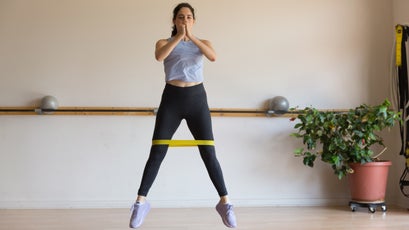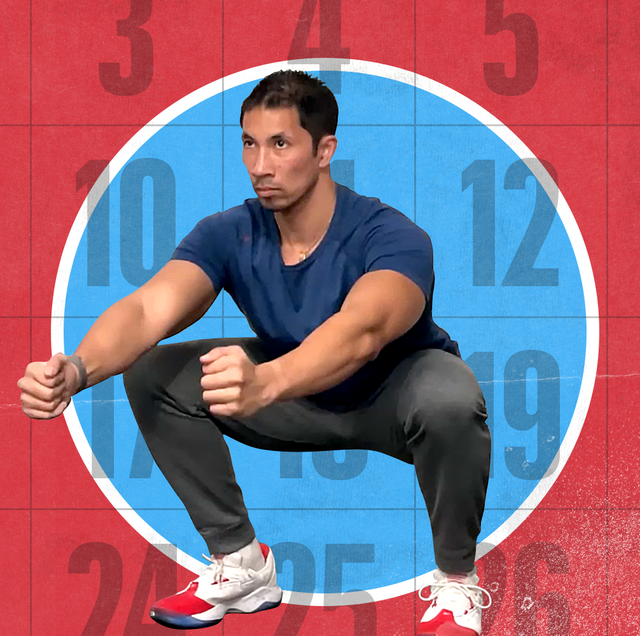
Boot camp classes have become a very popular way to train for fitness beginners. The classes are a combination of cardio and strength exercises. They will teach you the importance of pushing your body and having fun when it is tough.
Boot camps may be an effective way to shed pounds, but understanding what they are is essential before you enroll. You should be able and willing to commit to a weekly class.
Bootcamps may not be for everyone. It can be intense. Therefore, those with joint or cardiovascular problems shouldn't participate.
These exercises can be difficult, and are often based upon military drills and calisthenics. Some people can feel that they have no control over their movements or are doing something improper.

These are safe exercises that can increase strength, mobility and endurance. They also help burn fat.
HIIT is a style of exercise that incorporates high intensity cardio with strength exercises. It is less intense than bootcamp but can still be very effective at burning fat and building muscles.
Although HIIT workouts can help you burn more fat in less time, they are not for everyone. It is best to start slowly as it can be easy to fatigue your muscles by going too fast.
You should also remember to stick to your workout plan, even if you're not feeling very strong or you don't feel particularly motivated. You should also take frequent breaks to let your body recover.
Classes like these are great for teaching discipline and accountability. You may find it difficult to maintain a fitness regimen on your own. But, with the help of a coach and a group to support you, you can achieve this much more easily.

This is a key advantage of working out in a group. You will be constantly challenged by your fellow participants. This can motivate you to get in your workouts and can even encourage you when you have a bad day.
It's important to listen to your trainer, as they can point out any potential issues and correct you if you are doing anything wrong. You can ask them when you should take a rest or move onto the next exercise.
If you've never attended boot camp, you should try it out for free to see if this is the right program for you. You can meet other participants, ask questions and find out more information about the program.
FAQ
What does Nutrition do for Your Body?
Your body can function properly if you get the proper nutrition. To ensure that your body receives adequate nutrition, it is best to eat a balanced meal with lots of fruits and vegetables, lean protein, whole grain, as well as healthy fats.
What are Cardio Exercises?
Cardiovascular exercises are those that require your heart and lungs to work harder than normal. Examples include jogging, swimming, bicycling, rowing, and dancing. These activities help you burn fat and increase your metabolism. These activities can help you keep fit and strengthen your heart.
How can I get started in fitness?
Start small. Try taking 10 minutes each day to walk around the block. This will allow you to learn the basic movements and give your body time to adjust to the new routine. After you have mastered this basic form of exercise, you can add more steps to your daily schedule.
Is it possible that you can be too thin?
Yes! Eating disorders and being overweight are both dangerous. It's normal to be a little heavier than you should be. Other symptoms include feeling tired, weak and dizzy.
What are Resistance Training Exercises?
Resistance training is performed with weights and other objects. Lifting weights, for example, can help strengthen your arms and shoulders, chest, backs, legs, core, and core. Resistance training builds muscle mass, increases bone density, and promotes greater overall strength.
Statistics
- In 2018, the World Health Assembly agreed on a global target to reduce physical inactivity by 15% by 2030 and align with the Sustainable Development Goals. (who.int)
- Physical activity confers the following maternal and fetal health benefits: a decreased risk of pre-eclampsia, gestational hypertension, gestational diabetes (for example, 30% reduction in risk) (who.int)
- Globally, 81% of adolescents aged 11-17 years were insufficiently physically active in 2016. (who.int)
- In high-income countries, 26% of men and 35% of women were insufficiently physically active, as compared to 12% of men and 24% of women in low-income countries. (who.int)
External Links
How To
How to Lose Belly Fats More Fast
Belly Fat is often thought of as a problem when trying to lose fat. However, Belly Fat can be beneficial if you really think about it. It is the fat in your stomach that protects your organs. Let's now see how to quickly lose belly fat.
Lack of exercise and stress are the main reasons we store body fat. Cortisol hormone is stimulated by stress, which causes us to feel constantly hungry. Cortisol raises insulin levels. The excess calories are stored as fat by insulin. The release of adrenaline from our bodies causes increased appetite. Exercise helps to break down these extra calories.
There are many options to reduce belly weight. Any one of these can be tried, depending on how much you have to spend. These are some great tips to help you lose belly fat fast.
-
Eat less food. Eat smaller meals throughout the day rather than eating three big ones. This will help you consume less calories.
-
Make sure you drink plenty of water. Water flushes out toxins in your body and helps you stay hydrated. Drinking water before meals will help you feel fuller for longer, so you don't overeat.
-
Avoid snack foods that are unhealthy. If you're looking for quick fixes, snack foods like chips, cookies, candies, etc. might seem tempting. These fattening treats are best avoided as they have too many empty calories and sugar. Choose healthy options like whole grains, fruits, vegetables, nuts, seeds and nuts.
-
Three times per week, strength training is recommended. Strength training increases muscle mass, which can help you burn more calories while still resting. Strengthening your bones, muscles as well ligaments, joints, tendons, heart and lungs.
-
Walk or stretch regularly. Stretching can improve flexibility, mobility, and reduce back pain. Walking is a great way of burning calories, especially when you do it for just 30 minutes.
-
Reduce alcohol intake. Your diet is empty of calories, and alcohol has no nutritional content.
-
Reduce your weight gradually. Your current weight is the first step to losing weight. Calculate your ideal weight by adding approximately 5% to 10% of the total weight. Once you have established your ideal weight, reduce your daily calorie intake by 500 to 1000 calories each day until you achieve your goal.
-
Avoid processed foods. These foods are high on sugar, salt, and additives. Processed foods are often very convenient but don't provide enough nutrients to keep you healthy.
-
Don't skip breakfast! A good breakfast can improve concentration, memory, as well as energy level. Breakfast should contain protein (like eggs), fibre (like oats), as well as complex carbohydrates (like oatmeal).
-
Have regular bowel movements. Bloating and gas can be caused by irregular bowel movements and constipation. You can prevent this by drinking lots of water and increasing your fiber intake.